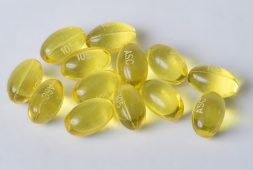6. May improve heart disease risk factors

For generations, traditional healers have utilized ginger to cure various diseases. Ginger advantages and adverse effects have been identified by modern researchers. Learning how this intriguing spice might benefit your heart health will inspire you to use it into your next dish. According to an article published in the January 2015 issue of the Journal of Renal Endocrinology, ginger is an antioxidant with powerful anti-inflammatory properties. These compounds are most likely responsible for ginger’s beneficial influence on your cardiovascular system. These benefits in diabetics were shown by the authors of a paper published in the February 2014 issue of the International Journal of Food Sciences and Nutrition. For three months, the researchers provided ginger to 70 persons with diabetes. In comparison to the placebo, ginger reduced triglyceride and cholesterol levels. It also helped them improve their blood sugar management and manage their symptoms. Ginger’s short-term impacts may have long-term implications. The authors of a June 2016 paper published in the journal Nutrition investigated the link between ginger usage and chronic disease. These researchers examined the data of over 4,000 participants and discovered that people who consumed more ginger had a lower risk of developing chronic heart disease or hypertension. Unfortunately, consuming ginger may result in negative side effects. Ginger, according to the author of a report published in the Marmara Pharmaceutical Journal in 2012, can lengthen bleeding duration. The author also analyzed two case studies demonstrating that ginger usage can create a pharmacological interaction in persons taking blood-thinning medications such as coumadin, and it’s crucial to remember that some meals can enhance this blood-thinning impact. According to a review published in the August 2014 issue of Natural Product Communication, ginger can help avoid blood clotting. These researchers believe that a short amount of ginger will not interact with blood-thinning medications, but they advise patients using these medications to avoid long-term usage of ginger. The authors of a paper published in the Nutrition Journal in March 2014 examined the effects of ginger on over 1,000 pregnant women. Participants who consumed any kind of ginger orally, including ginger water and ginger tea, were eligible for the study. Ginger consumption reduced nausea but not vomiting, according to the findings. Most significantly, ginger has no negative side effects. According to a review published in the July 2012 issue of the Journal of Medicinal Plants Research, one of the benefits of ginger tea is improved digestion. To make ginger tea, pulverize 2.5 centimeters of raw ginger and add half a dessert spoon to a full glass of cold water. Cook for five minutes before serving. Ginger may also aid with nausea in other instances. The authors of a report published in Complementary Therapies in Medicine in April 2015 investigated the effects of ginger aromatherapy on 60 women with breast cancer. During their chemotherapy, these patients were given ginger. The spice reduced nausea throughout the most intensive period of treatment, compared to a placebo.



